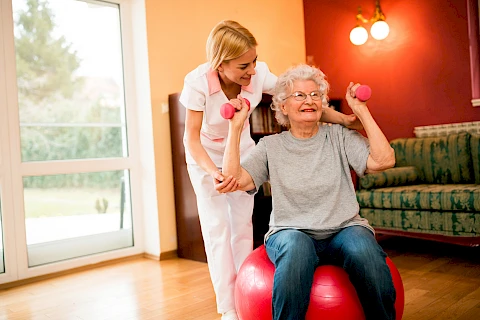
Senior fall prevention is vital as our balance, strength, and vision deteriorate with age, increasing fall risks. Centers for Disease Control (CDC) research shows that over 25% of people over 65 experience falls annually, leading to injuries or hospitalization. Senior Helpers offers insights and steps for caregivers to ensure the safety of their loved ones.
What Are the Risks of Accidentally Falling?
Knowing more about the causes and dangers associated with slipping and hurting yourself is the first step in prevention. Common causes of falls in older adults include:
- Poor balance
- Weak muscles
- Vision problems
- Medications that cause dizziness
- Health conditions like arthritis, diabetes, and heart disease
- Slippery floors
- Inadequate lighting
Home Modifications
Making simple changes at home can significantly reduce the risk of falls. To reduce any instances of slipping and falling at home:
- Assess for hazards like loose rugs or clutter.
- Rearrange furniture for clear paths, secure rugs, and keep items within reach.
- Install grab bars in the bathroom and handrails on staircases, and use non-slip mats.
- Enhance lighting in hallways, staircases, and bathrooms, and use nightlights for better nighttime visibility.
Exercise Routines
Exercise is critical for balance, strength, and averting mishaps. The most recommended activities are Tai Chi for balance, walking for health, and strength training for muscle strength. However, always consult a doctor before starting a new routine. Once given the green light, begin with short sessions, gradually increase the duration, and establish a regular schedule for consistency.
Regular Health Check-Ups
Routine medical visits play a crucial role in senior fall prevention. Regular check-ups manage health conditions and spot new risks. Vision and hearing assessments are key in detecting balance-affecting issues. Medication side effects such as dizziness can heighten fall risk, requiring frequent reviews. Healthcare providers may also suggest mobility aids like canes or walkers for safer movement.
Communicating About Senior Fall Prevention
Talking about fall prevention can be sensitive. Here's how to approach the topic with care:
- Approach the topic sensitively by expressing your concerns and the importance of safety. Use empathetic language and listen to their worries.
- To have a productive conversation, share facts about the risks and benefits of fall prevention. Highlight that changes are about safety, not independence.
- Address concerns and resistance by being patient and understanding if your loved one resists changes. Offer reassurance and involve them in decision-making.
- Involve loved ones in decision-making by encouraging them to voice their preferences and working together to implement changes that they are comfortable with.
How Are You Helping Deter Accidents at Home?
Start discussing senior fall prevention today to proactively safeguard your loved ones' safety and well-being. For professional assistance and elderly care services,contact us. Senior Helpers Peachtree City proudly serves Peachtree City, Atlanta, Newman, and Fayetteville, GA.